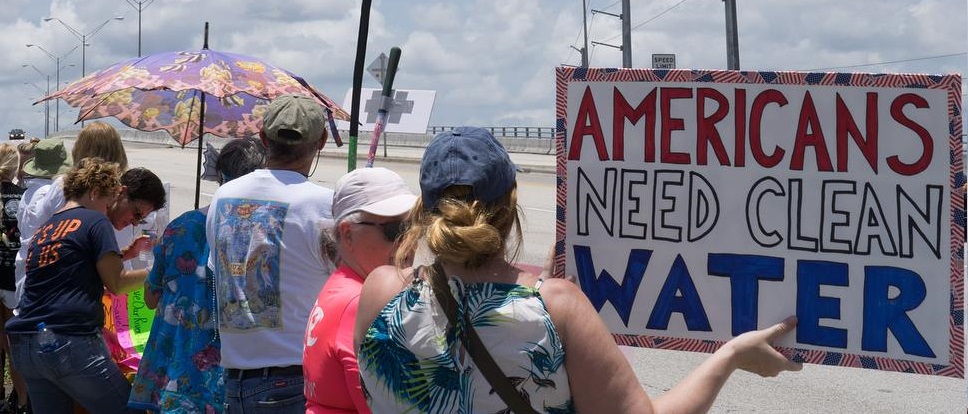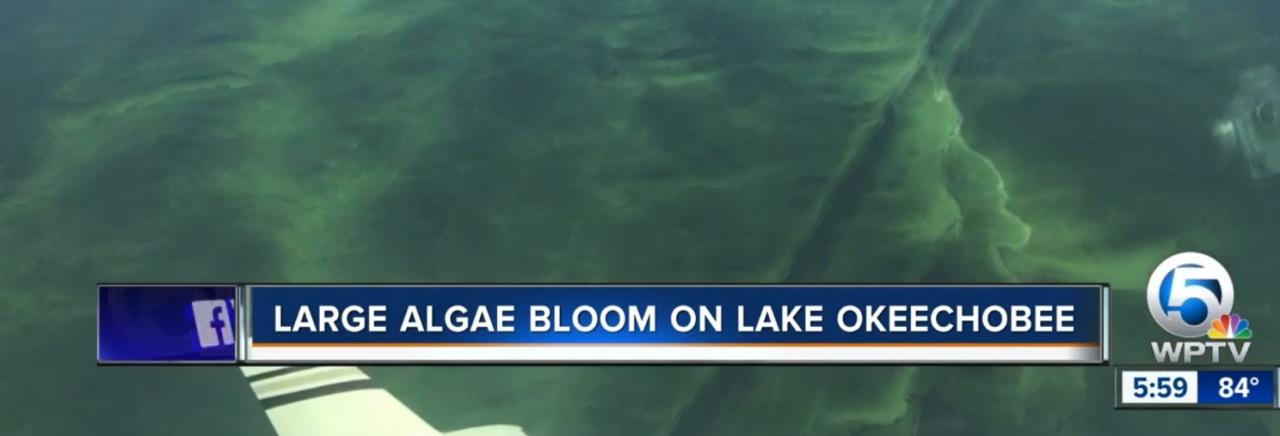Why Don’t Federal Water Policies Put People First?
Why Don’t Federal Water Policies Put People First?
Gil Smart was right: the pictures from Saturday’s rally on the Roosevelt Bridge could have been from any number of toxic algae summers on the St. Lucie. Same frustrations. Same fears. With giant toxic algae blooms on Lake Okeechobee two of the last three years, and so much scientific evidence that these blooms are linked to deadly diseases like ALS, Alzheimer’s and cancer, how much longer can we ignore this looming health crisis?

Gil asked what we want. How about a federal policy change on toxic discharges that prioritizes human health and safety above everything else? The Army Corps answers to Congress, so Congress has the power to make this happen. Will the rest of Florida’s delegation–26 in the House and two in the Senate–stand up for our health and safety the way Rep. Brian Mast has?
These discharges aren’t inevitable. “We the people” own 57,000 acres of stormwater treatment areas that can store more than 50 billion gallons of lakewater and can send more than 10 billion gallons south every week. That could have been enough to reroute the current discharges–if the policy made it a priority. But instead of protecting us from potential exposure to toxins, the system is full of billions of gallons of sugarcane runoff, pumped off the fields to safeguard this year’s yields.
Someday the EAA reservoir, which the sugarcane industry lobbied so hard against, might give us even more capacity to cut discharges like this year’s–if it’s built right. But if its operating policy doesn’t place human health and safety first, there’s no guarantee anything will change.
Prioritizing human health and safety also means reducing flood risks for Glades communities, and the Corps isn’t doing that either. Keeping the lake levels high this winter elevated the risk that sudden inflows would endanger the dike, which is exactly what happened. Then backflow from pumped-out fields was allowed to surge back into the lake, making the situation even more dangerous and contributing to the “necessity” of discharging water for flood protection. That’s not flood protection, that’s using people as human shields to keep fields dry when everything around them is flooded.
This is wrong. Congress has more than the authority to fix this system; it has a moral obligation to tell the Army Corps to put people first–in the Glades and on the coasts–as they manage our water.
So that’s what we want: a government policy change that says our health and safety is the most important factor in the management of Lake Okeechobee and South Florida’s water system. Of course we want a system that works for everyone, including the sugarcane industry. But as long as the system requires us to make tough decisions, isn’t it reasonable to make protecting people the #1 priority?



